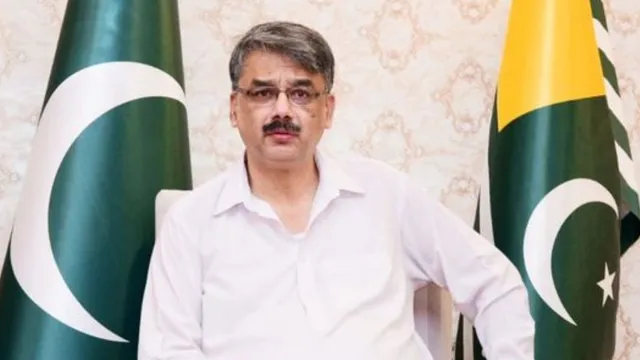- By Shivangi Sharma
- Wed, 19 Nov 2025 06:05 PM (IST)
- Source:JND
In a startling admission that has triggered shockwaves across the region, Chaudhry Anwarul Haq, President of Pakistan-occupied Kashmir (PoK), openly claimed Pakistan’s hand in recent terror attacks on Indian soil, including the deadly blast near Delhi’s Red Fort and the massacre of tourists in Jammu and Kashmir’s Pahalgam.
Haq reportedly referred to the November 10 Red Fort-area blast, where a slow-moving car exploded near the metro station, killing at least 15 people. Investigators have linked the attack to a Jaish-e-Mohammed (JeM)-connected terror module operating out of Faridabad. The module’s alleged mastermind, Dr. Umar Un Nabi, was arrested days before the bombing as part of a broader crackdown on what authorities described as a “white-collar terror network”.
He also invoked the Pahalgam attack, where 26 tourists visiting the Baisaran Valley were gunned down in a brutal ambush by Pakistan-linked terrorists. "If you keep bleeding Balochistan, we’ll hit India from Red Fort to the forests of Kashmir. By the grace of Allah, we've done it and they’re still unable to count bodies," Haq boasted in the viral video. He went on to suggest that Indian authorities had “not yet counted all the bodies” from the Delhi blast, a taunt that has drawn strong condemnation.
NIA Crackdown And India’s Diplomatic Countermove
The National Investigation Agency (NIA) recently arrested Amir Rashid Ali, suspected of involvement in the Red Fort bombing. Meanwhile, the Enforcement Directorate (ED) is probing the financial trail behind the terror network, including possible links to institutions such as Al-Falah University in Haryana.
India has responded by intensifying diplomatic pressure on Pakistan. Following the Pahalgam massacre, the government suspended provisions of the Indus Waters Treaty, warning that cooperation would only resume if Islamabad stopped sponsoring cross-border terrorism.
Other Leaders Expose Terror Playbook
Pakistan’s federal government has attempted to downplay Haq’s confession, describing it as a “political misstep” by a leader who recently lost a no-confidence vote in PoK. However, this is not an isolated admission.
Recently, Khyber Pakhtunkhwa Chief Minister Sohail Afridi accused the central government of orchestrating “fake terror attacks” and blocking peace efforts in the region. He claimed Islamabad “manufactures terrorism” for political leverage, echoing longstanding allegations about Pakistan’s deep-state tactics.
Reports earlier revealed that the Faridabad module linked to the Red Fort blast was planning a major suicide attack on December 6, coinciding with the anniversary of the Babri Masjid demolition.

